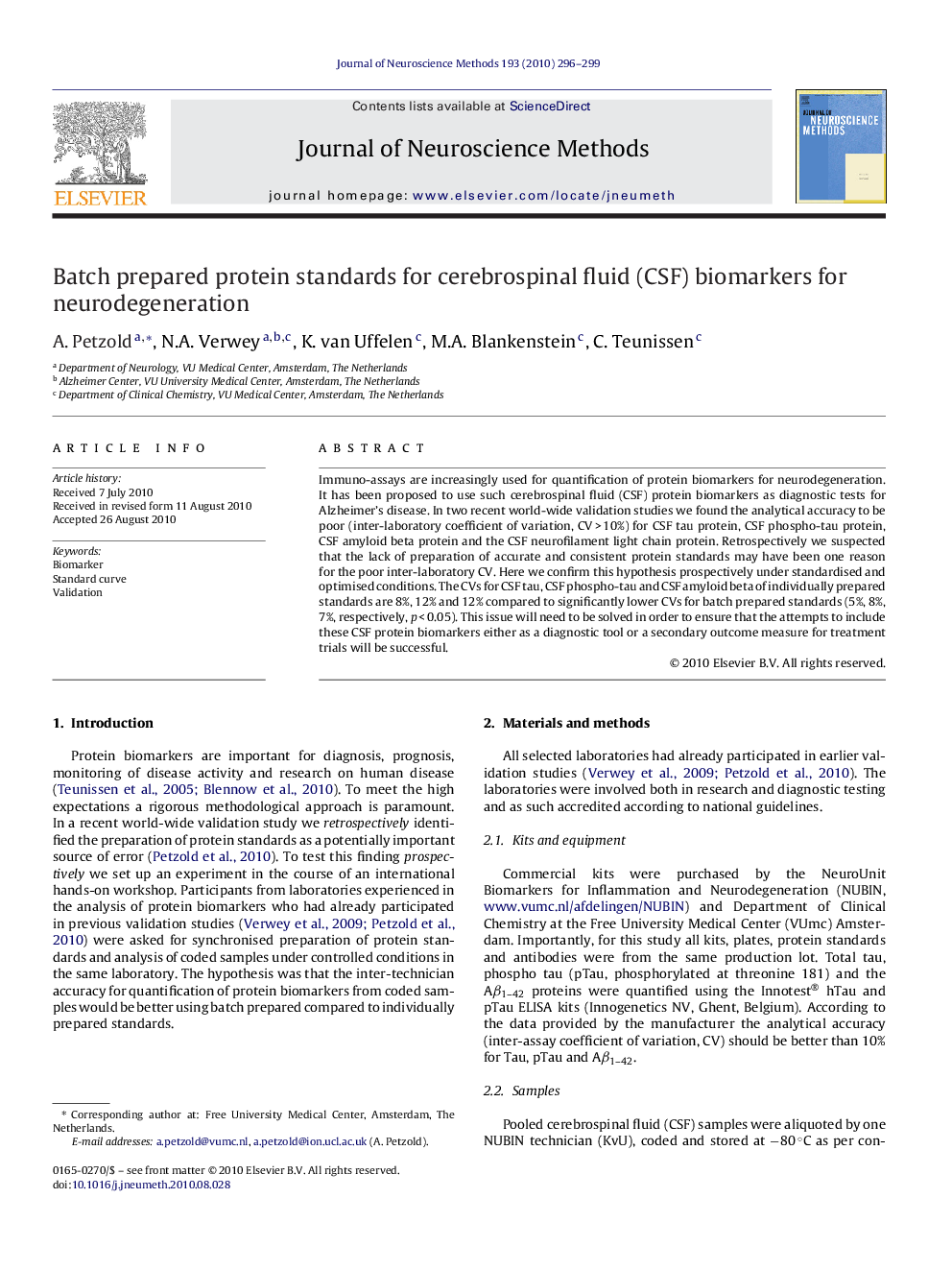| Article ID | Journal | Published Year | Pages | File Type |
|---|---|---|---|---|
| 6269921 | Journal of Neuroscience Methods | 2010 | 4 Pages |
Immuno-assays are increasingly used for quantification of protein biomarkers for neurodegeneration. It has been proposed to use such cerebrospinal fluid (CSF) protein biomarkers as diagnostic tests for Alzheimer's disease. In two recent world-wide validation studies we found the analytical accuracy to be poor (inter-laboratory coefficient of variation, CV > 10%) for CSF tau protein, CSF phospho-tau protein, CSF amyloid beta protein and the CSF neurofilament light chain protein. Retrospectively we suspected that the lack of preparation of accurate and consistent protein standards may have been one reason for the poor inter-laboratory CV. Here we confirm this hypothesis prospectively under standardised and optimised conditions. The CVs for CSF tau, CSF phospho-tau and CSF amyloid beta of individually prepared standards are 8%, 12% and 12% compared to significantly lower CVs for batch prepared standards (5%, 8%, 7%, respectively, p < 0.05). This issue will need to be solved in order to ensure that the attempts to include these CSF protein biomarkers either as a diagnostic tool or a secondary outcome measure for treatment trials will be successful.
Graphical abstractDownload full-size imageResearch highlightsⶠA high analytical accuracy is needed to establish cerebrospinal fluid biomarkers as additional diagnostic criteria in neurological disorders. ⶠThe largest source of error identified in world-wide validation studies was inaccurate protein standard preparation. ⶠThis study shows prospectively that batch prepared protein standards are of better quality than individually prepared standards. ⶠHigh quality protein standards are a sine qua non for success of future biomarker validation studies.
